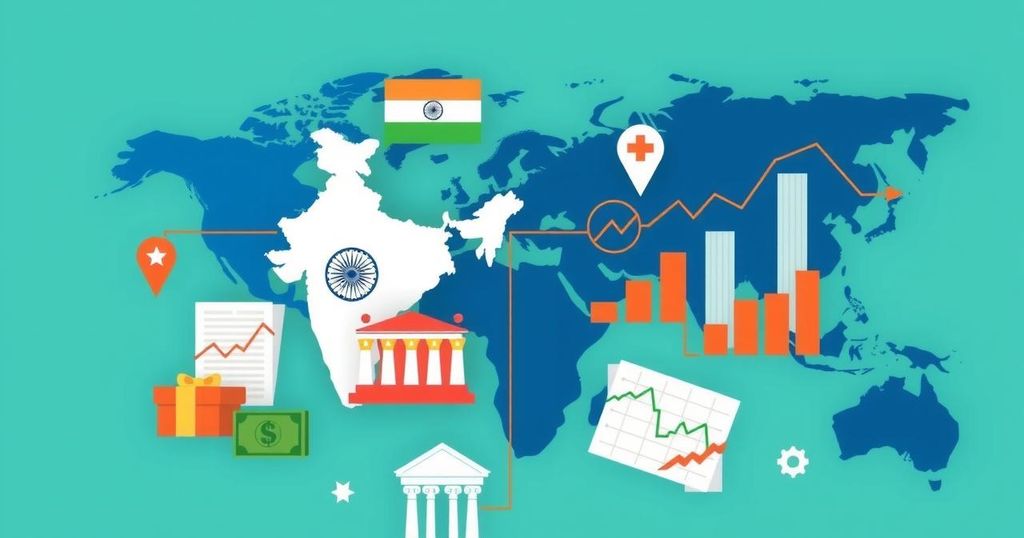India and the U.S. are engaged in intensive trade discussions, with External Affairs Minister S. Jaishankar emphasizing their significance amidst upcoming U.S. tariffs. Negotiations for a bilateral trade agreement are set to commence by fall 2025, aiming to address both nations’ economic interests. Jaishankar also noted ongoing free trade talks with the EU and the UK, alongside enhanced defense and energy cooperation with the U.S.
India and the United States are currently engaged in vigorous and intense discussions regarding trade, as stated by External Affairs Minister S. Jaishankar. This dialogue is particularly significant given the impending implementation of reciprocal tariffs by U.S. President Donald Trump, scheduled for April 2. During a session organized by the Asia Society, Mr. Jaishankar emphasized the necessity for a bilateral trade agreement (BTA) while refraining from speculating about immediate negotiation outcomes.
Following a recent meeting between Prime Minister Narendra Modi and President Trump in Washington, both nations have committed to initiating negotiations for the BTA by the fall of 2025. Mr. Jaishankar confirmed that the ongoing trade discussions are robust and vital, asserting that he believes the negotiators will successfully reach a favorable agreement for India, despite acknowledging concerns surrounding the country’s agricultural market.
Furthermore, Mr. Jaishankar highlighted India’s pursuit of free trade agreements with the European Union and the United Kingdom, describing these talks as advanced and serious. The Minister expressed optimism about transforming these potential agreements into substantial frameworks, in parallel with enhancing defense ties and energy cooperation with the United States under the current administration.
In his remarks, Mr. Jaishankar noted the importance of a stable energy environment for India’s long-term growth, recognizing a shift toward diverse energy sources facilitated by U.S. policies. He recalled India’s long history of importing liquefied natural gas (LNG) from the U.S. and expressed an interest in increasing these imports, citing America’s reliability as a supplier.
Regarding President Trump’s policies, Mr. Jaishankar remarked that the changes witnessed align well with India’s interests and present opportunities for collaboration. The dialogue between the two nations is situated against the backdrop of possible global trade conflicts stemming from U.S. tariffs, which have prompted fears of retaliatory measures from various nations.
India’s recent tariff reductions on goods such as Bourbon whiskey and electric vehicles in its Union budget for 2025-26 signal its willingness to streamline trade relations with the U.S. Concurrently, Washington is encouraging India to purchase more American oil, gas, and military equipment to address the significant trade deficit, which currently stands at approximately $45 billion in favor of India. With a total bilateral trade reaching $190 billion in 2023, the U.S. remains India’s largest trading partner, and a significant source of foreign direct investment.
India and the U.S. are actively discussing a bilateral trade agreement to enhance trade relations amidst geopolitical tensions. External Affairs Minister S. Jaishankar expressed confidence in negotiators crafting a beneficial agreement. The discussions also encompass broader economic partnerships, including energy and defense collaboration. Amidst ongoing trade tariff concerns, India is demonstrating willingness to adjust its tariff structures and engage in further negotiations with its other trading partners, maintaining its strategic economic position globally.
Original Source: www.thehindu.com






